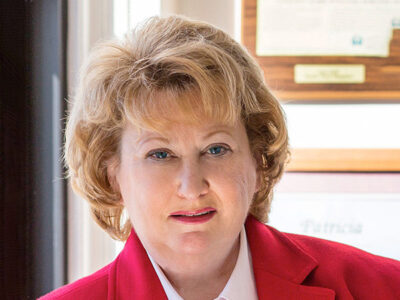Coupled with the repeal of the Affordable Care Act, the administration's proposed cuts to the NIH budget would be devastating for cancer patients, said Patricia Goldsmith, CEO of CancerCare, an organization that provide counseling, support groups, education, and financial assistance.
If Congress follows the fiscal 2018 budget priorities outlined by the White House, the United States will lose its standing as the powerhouse of biomedical research, said Blase Polite, chair of the American Society of Clinical Oncology Government Relations Committee.
Over decades, Ellen Sigal has emerged as a Washington insider in oncology, someone who has the ability to convene key players in academia, industry and government.
First, Congress should follow through on increasing the NIH budget by $2 billion in fiscal 2017, said Nancy Davidson, president of the American Association for Cancer Research.
Now, President Trump's budget proposal seeks to drop the NIH budget to $25.9 billion. That's $1.2 billion below the FY 2003 level, the year when the doubling was completed. These are absolute numbers. Adjusting for inflation will erode these funds even more.
FDA may have escaped the devastating cuts in President Trump's first budget proposal, while NIH ended up taking the brunt of its fury.
As spring meetings get going, many cancer organizations are offering what amounts to packing tips, suggesting that some electronic devices are best left at home.
The House Republicans on March 6 published the Obamacare repeal bill, touching off predictable tidal waves of recriminations, with Democrats stating that the bill would “rip healthcare away from millions of Americans, ration care for working families and seniors, and put insurance companies back in charge of healthcare decisions”
Ronald DePinho announced on March 8 that he will be stepping down as president of MD Anderson Cancer Center.DePinho's five-and-a-half years at the helm of the world's largest cancer center were marked by unprecedented turbulence, questions of conflicts of interest, and unhappiness on the part of the faculty.
FDA's approval process for drugs is “slow and cumbersome,” President Donald Trump said in his first address to a joint session of Congress on Feb. 28.















